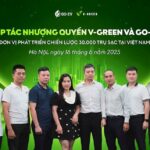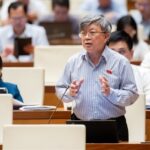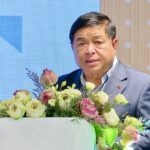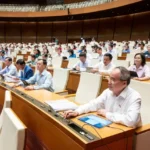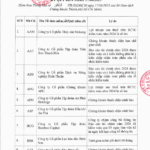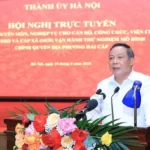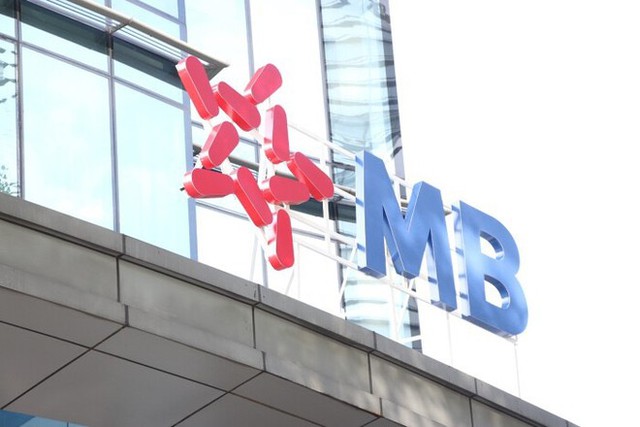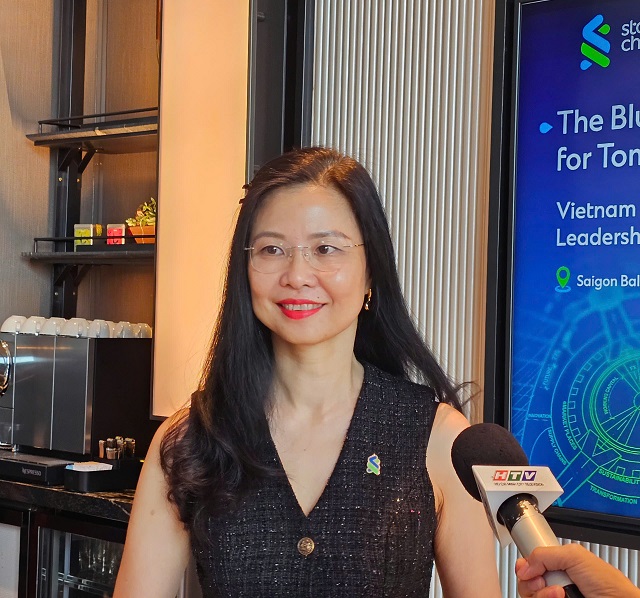
Ms. Nguyen Thuy Hanh, CEO and Head of Corporate, Institutional, and Investment Clients at Standard Chartered Vietnam
|
First and foremost, the establishment of an international financial center in Vietnam presents a significant opportunity for domestic and foreign businesses and financial institutions. International financial centers are known for offering low operating costs, a clear and flexible legal framework, and a conducive business environment.
Investors who choose to locate their headquarters or trading offices in Vietnam’s international financial center can expect favorable tax policies, simpler legal compliance, and more efficient business operations. Additionally, the range of financial services will be more diverse, including digital banking, digital currencies, commodity index trading, greater freedom in foreign currency trading and business, centralized cash management—which is not commonly found in traditional banks—and commodity trading with more sophisticated risk management tools.
Secondly, in terms of legal compliance costs, if the international financial center is governed by a unified regulatory body, compliance costs and processes will be streamlined and consistent, enabling businesses to expedite transaction processing. Moreover, the flow of funds into and out of this financial center may enjoy greater freedom compared to the regular economic system.
A particular point of interest for investors is the potential adoption of ESG (environmental, social, and governance) standards and regulations such as IFRS (International Financial Reporting Standards). Currently, banks in Vietnam have not fully implemented these standards. By embracing international best practices, the international financial center can offer Vietnamese businesses a significant opportunity to access green capital from domestic and foreign sources to finance sustainable projects in Vietnam and the region.
Regarding the recent US countervailing duty on Vietnam, in April, the US government’s policy shift drew significant international attention. The Vietnamese government promptly responded by actively engaging and negotiating with the US to protect the interests of both countries and their business communities.
Standard Chartered Vietnam swiftly assessed the impact within 24 hours of the US announcement. The bank scrutinized its entire client portfolio in Vietnam and across its international network to identify specific risks and provide timely financial support.
Over the past two months, Standard Chartered Vietnam has been in constant dialogue with its clients to develop scenarios and strategies to navigate the potential tax implications. Fortunately, the first two rounds of negotiations, as well as the third round, have yielded positive signals. The bank’s clients have also been diligent in preparing their strategies and cash flow management, and as of now, no significant risks have been identified.
Throughout this period, clients have proactively developed various response scenarios, moving beyond a passive stance. They have prepared alternatives, such as supply chain adjustments, market diversification, and financial restructuring, to mitigate the impact of potential new tax rates.
– 15:43 06/18/2025
The Billion-Dollar Project: Unveiling the Investors Behind Quang Ninh’s Mega Venture
Introducing the prestigious Monbay Van Don project – a breathtaking, integrated tourism, entertainment, and luxury resort complex, complemented by a world-class golf course and residential area. Haidang, a renowned and trusted investor, has been meticulously selected to bring this billion-dollar vision to life.
There is No Truth to the Rumors of Vietnam’s Railway Project Being Sold or Conceded to Foreign Entities
Emphasizing the importance of capable and financially sound investors, delegates asserted that investors must possess the capacity and means to raise capital for project development. They further suggested that a mechanism for evaluation and cross-examination is necessary to identify investors with genuine resources and capabilities.
Marching Boldly Forward: Vietnam’s Stride Towards Becoming an AI Powerhouse
This captures the essence of the original text but with a more creative and engaging twist.
“With a dynamic and tech-savvy young workforce, and a thirst for innovation and creativity, Vietnam is poised to become a regional and global hub for AI research, development, and application.” asserted Deputy Prime Minister Nguyen Chi Dung. He called on local and international businesses and regulatory bodies to unite and forge ahead, contributing their expertise and intellect to establish Vietnam as an AI powerhouse.
The Government Official’s Entrepreneurial Endeavors: Navigating Restrictions with Precision.
The amended Enterprise Law outlines specific restrictions on individuals who are not permitted to establish, contribute capital to, or manage enterprises. This includes public employees and officials as outlined in the Law on Public Employees and the Law on Officials, with the exception of those involved in activities related to national science, technology, innovation, and digital transformation initiatives.



























